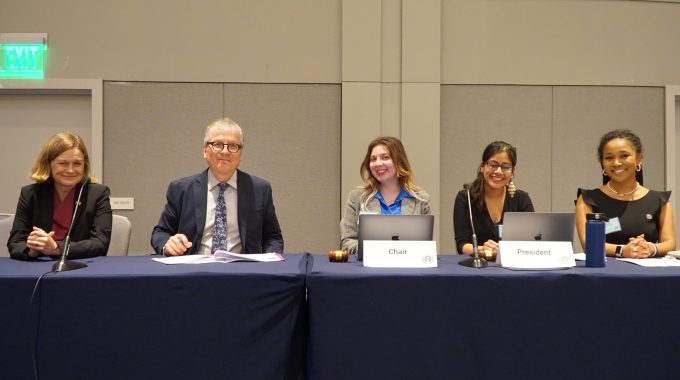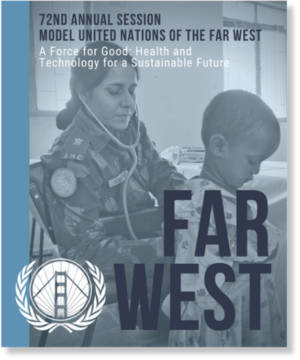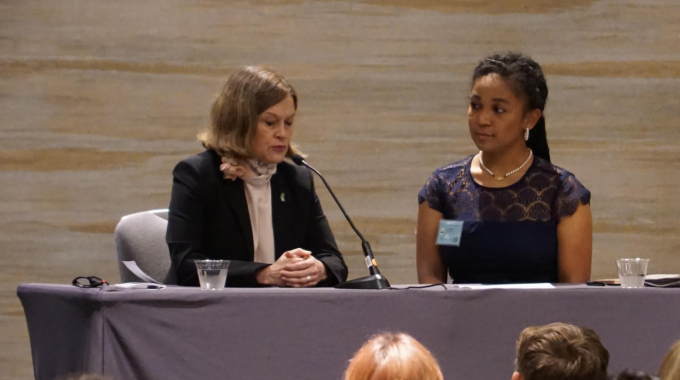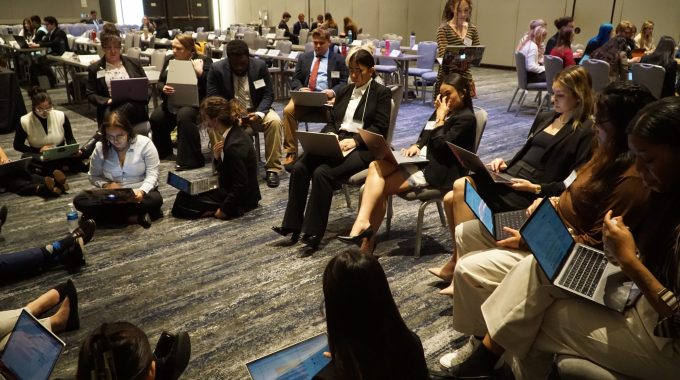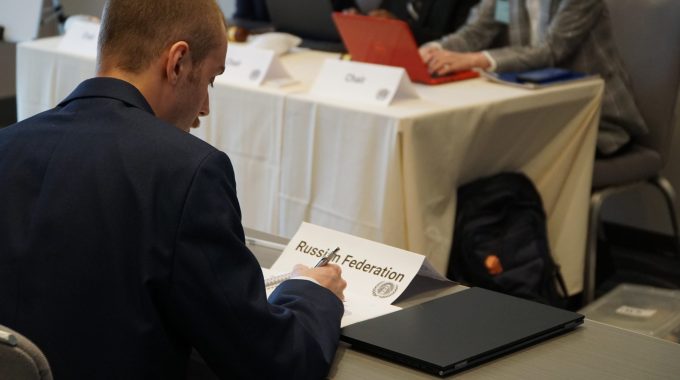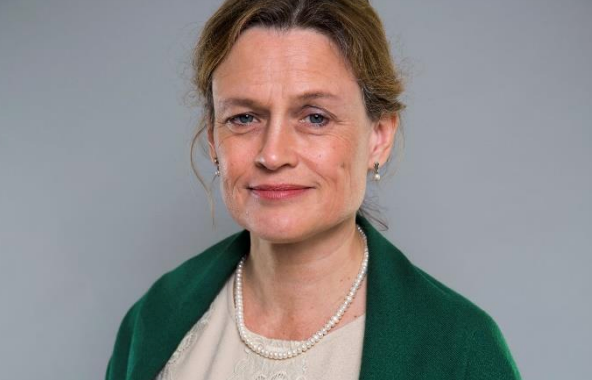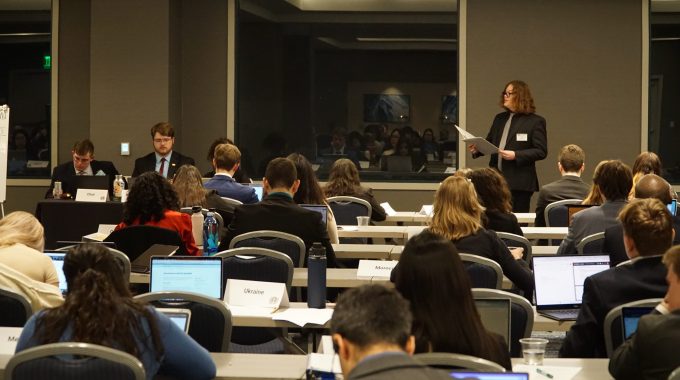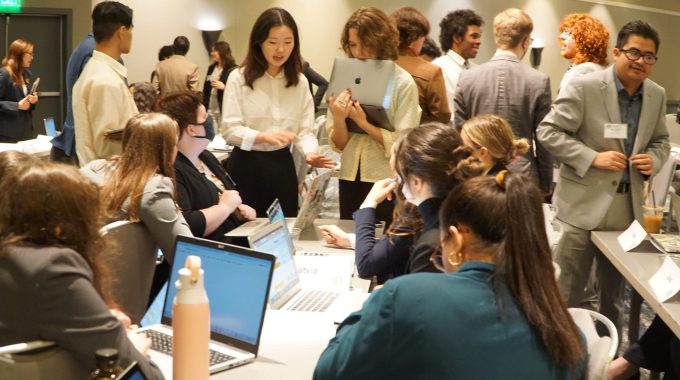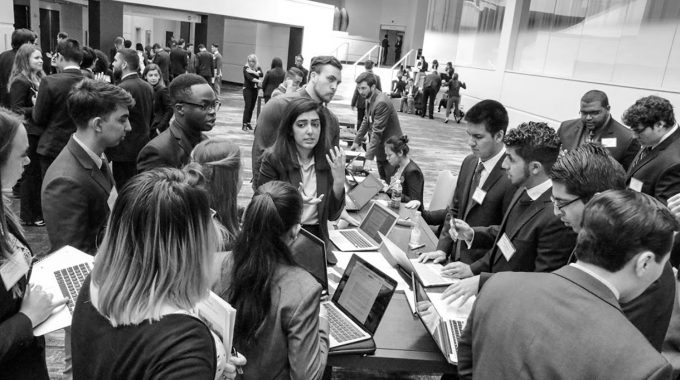Opening Plenary Notes
The Opening Plenary of the Model United Nations of the Far West began with roll calls of the member states, of which 55 were present. Following roll call, the chairs of the General Assembly invited the Secretary-General, Zoe Iseri, to the podium. Ms. Iseri discussed the shared mission of the MUNFW to an equitable and peaceful sustainable future, which includes human rights and pandemic responses. The Secretary-General points out that collaboration is important in this conference; to listen and embrace differences equals a world where no one is left behind. Ms. Iseri calls the member states to be open to new perspectives, challenge previous assumptions, and be a force for good. She reflects on her own academic journey and how it led to her research project on water politics in Jordan, where she studied abroad for the summer in 2022. Ms. Iseri notes Jordan’s collaboration with neighboring countries and taking refugees while facing water scarcity. Her experience in Jordan made her realize that everyone needs to be called to action in order to “work together for a better world.” In her closing remarks, Ms. Iseri advises member states to embrace the spirit of inquiry and collaboration so an equitable and sustainable world can be attainable for all.
After the applause died down, Secretary-General Zoe Iseri invited keynote speaker, Brian Gorlick to the podium. For twenty-seven years, Brian Gorlick has worked with the Office of the High Commissioner for Refugees and the United Nations Secretariat (For more information on Brian Gorlick: see [article title]). Mr. Gorlick begins his speech praising Dr. Mike McBride and Michelle Cervantes for their years of service in Model UN. He then continues on praising MUNFW for their exceptional agenda, which included human rights, universal health care, and safe use of nuclear technology. Mr. Gorlick advises the delegates that being well prepared means thorough research and being an effective negotiator requires patience, perseverance, practice, and being a good listener. Even when debates get headed, delegates should keep a cool head and be inclusive of different viewpoints. As stated by Mr. Gorlick, seventy-five percent of UN resolutions are adopted, but he reminds the delegates that the value of the UN are member states showing up and having discussions. Mr. Gorlick reminds the audience the obligations of the member states, including taking concrete steps towards progress and to protect the people. He declares, “No one should be sick or die because they are poor.” Mr. Gorlick ends his speech wishing the delegates well throughout this conference.
After the inspiring speech from Mr. Gorlick, the chairs of the General Assembly invite five representatives from each region of the world to take the podium. The five member states are: Mozambique, representative of Africa; India, representative of Asia; Poland, representative of eastern Europe; Cuba, representative of Latin America and the Caribbean; Belgium, representative of western Europe. Mozambique focused on the issues of terrorism, disempowerment of women and girls, and the climate crisis. India, in their speech, pointed out that in order to achieve the goals of Sustainable Development, universal healthcare access must go into effect throughout the world. India impressed upon the member states the importance of universal healthcare in achieving the Sustainable Development Goals. Poland called the member states to action to support Ukraine in their war against Russia, as the Ukrainian refugees are facing problems that are to be talked about in the conference. Cuba prioritized access to medicine and the transfer of medical technology while discussing the benefits of utilizing science to achieve the goal of health care for all. Lastly, Belgium discussed the possibility of achieving shared goals for a sustainable future despite the many differences among the member states. Western Europe’s delegate declares “No one is safe until everyone is safe.”
Once the five representatives gave their speeches to the delegates, the chairs of the General Assembly asked if any of the member states wished to declare P-27: suspension of meeting. The United States called for a P-27 with no objections from the other member states. The meeting was suspended until later that evening when the delegates went into their separate committees.
Angélica Escobar
World Press Editor

